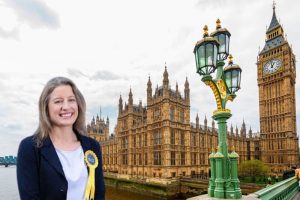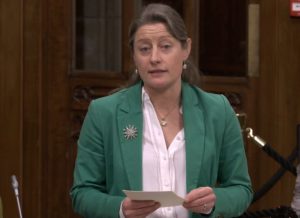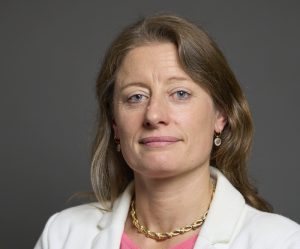Government Spending Review Falls Short for Surrey Councils and Epsom Hospital, Say Local Leaders
The UK Government’s latest Spending Review has drawn a mixed reaction from Surrey leaders, with concerns mounting over local council finances and delays to urgently needed hospital upgrades in the Epsom area.
Surrey County Council: Welcome Commitments, Ongoing Pressures
Responding to the Chancellor’s announcements, Surrey County Council Leader Cllr Tim Oliver acknowledged “important announcements,” including increases in core funding for local government, funding pledges for children’s services, and a renewed commitment to reforming Special Educational Needs and Disabilities (SEND) provision.
However, Cllr Oliver warned that the headline increase in “core spending power” rests on councils raising council tax by the full 5%—a move that may place strain on households during a cost-of-living crisis. Even with that assumption, county and unitary authorities across England are projected to face a £2.2 billion funding gap next year.
“Whilst our finances have been transformed to a point where we have delivered stable, balanced budgets year after year,” Oliver said, “we are not exempt from the financial challenges faced by councils.”
Oliver stressed the urgency of the upcoming Fair Funding Review, calling for a “fair and proportionate” outcome to ensure long-term stability for local authorities like Surrey.
Locally, the council has invested an additional £15 million into a three-year SEND recovery plan, begun in September 2023, which is reportedly beginning to bear fruit. But Oliver added that the government’s announcements stop short of tackling deeper issues. “Provision and support for children with SEND is a systemic issue… and the current system does not work for families, schools or councils,” he said.
SEND Deficits and Budget Certainty
Perhaps the sharpest criticism came over the government’s silence on the spiralling SEND deficits many councils face. Without intervention, these deficits—currently kept off balance sheet—will be formally accounted for from next April.
“Many local authorities, including Surrey, are facing a continuing increase in demand in comparison with levels of funding received,” Oliver said. “Councils will soon start planning their budgets for next year and cannot afford to have this can kicked down the road any longer.”
Future of Local Government in Surrey
The Spending Review did include a continued commitment to Local Government Reorganisation (LGR)—a development welcomed by Surrey County Council. Surrey recently submitted a proposal to transition to two unitary authorities, a move that could reshape local government in the county.
“We have worked hard to form that proposal,” said Oliver, “to deliver the best possible outcome for Surrey residents.”
Local MPs Condemn “Missed Opportunity” for Epsom & St Helier Hospitals
Meanwhile, the Liberal Democrat MPs for Epsom & Ewell, Carshalton & Wallington, and Sutton & Cheam expressed deep disappointment over the absence of additional investment in the long-delayed redevelopment of Epsom & St Helier Hospitals.
Despite a known £150 million repair backlog, the government has only committed £12 million to date, with the timeline for a new specialist emergency hospital now postponed until 2033 under the Labour government. Local MPs Bobby Dean, Helen Maguire, and Luke Taylor said this continued delay threatens the “very future of our hospitals.”
“The Government has missed a massive opportunity to deliver real change for Epsom & St Helier Hospitals,” they said in a joint statement. “£12 million is simply a drop in the ocean.”
The trio highlighted years of cross-party pressure in Westminster, including Prime Minister’s Questions and debates, aimed at securing vital upgrades for the “crumbling” estate. “After 14 years of broken promises, the Government has an opportunity to do better,” they added.
Rising Council Tax on the Horizon
Further national analysis has added to concerns around the financial implications of the Spending Review for local authorities. Paul Johnson, Director of the Institute for Fiscal Studies (IFS), noted that while English local government fared “perhaps a little bit better than it might have expected,” there is a “sting in the tail”: council tax bills are now set to rise at their fastest rate of any parliament since 2001–2005.
Chancellor Rachel Reeves confirmed that councils’ core spending power will rise by 2.6% annually from next year. However, this figure is based on the assumption that councils will impose the full 5% annual increase in council tax—an option many local authorities may feel compelled to take. “We won’t be going above that,” Reeves said. “That is the council tax policy that we inherited from the previous Government, and that we will be continuing.”
Liberal Democrat deputy leader Daisy Cooper described the overall package as a “missed opportunity,” warning that council budgets—especially in areas such as social care—remain “very, very stretched.” She added: “The Government is now looking to local councils to put up council tax to plug the gap in these particular areas… We cannot wait. This can’t be kicked down the road any longer. The Government has got to act now.”
For residents of Epsom and Ewell, the message is clear: whether through delays to vital infrastructure or increasing local taxation, the burden of national decisions may be felt most acutely at the community level.






















